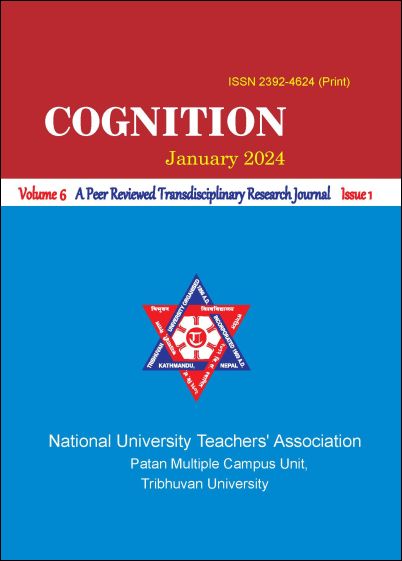The Illusion of Truth in Michael Ondaatje’s Anil’s Ghost
DOI:
https://doi.org/10.3126/cognition.v6i1.64437Keywords:
Orientalism, Pathologist, Trauma, Archeologist, DistortionAbstract
Michael Ondaatje's Anil’s Ghost, a literary masterpiece, focuses on the distortion of truth. Set against the backdrop of civil unrest in Sri Lanka, the novel follows forensic anthropologist Anil Tissera as she exposes the complexities of revealing truth in a world rife with political and personal turmoil. This research abstract delves into the multifaceted layers of reality distortion portrayed in Ondaatje's work .At its core; the novel questions the notion of objective reality. Ondaatje masterfully employs fragmented narratives, shifting perspectives, and unreliable memories to diminish the lines between truth and fiction. Through Anil's investigation into the skeletal remains of victims of political violence, Ondaatje exposes the subjective nature of memory and the inherent biases that shape our understanding of past events. Moreover, the novel explores the psychological toll of living in a reality distorted by trauma and political oppression. Characters like Anil and Sarath, haunted by their pasts, grapple with the existential question of whether it is possible to reconcile personal truth with the external realities imposed upon them. Ondaatje's lyrical prose evokes a sense of disorientation, mirroring the characters' internal struggles as they confront the elusive nature of reality. Furthermore, the novel examines how power dynamics influence the construction of reality. Ondaatje exposes the ways in which those in positions of authority manipulate narratives to serve their own agendas, perpetuating falsehoods and suppressing marginalized voices in the process. Through Anil's quest for justice, the novel underscores the importance of bearing witness to the silenced truths obscured by those in power. The novel serves as a profound exploration of the distortion of reality in the face of political upheaval and personal trauma.




